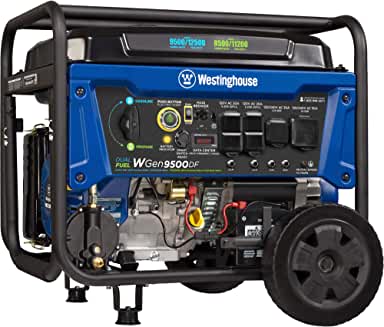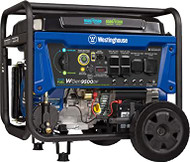Portable generator: Everything You Need to Know
2023 Apr 13th
View the collection available on amazon.com

Portable generator: Everything You Need to Know
Portable generators are a great investment for anyone who wants to have a reliable source of power in case of an emergency or power outage. These generators are designed to be easy to move around and can be taken to different locations, making them ideal for camping, tailgating, and other outdoor activities. Here's everything you need to know about portable generators.
View the collection available on amazon.com
Portable generator types There are two main types of portable generators: inverter and conventional. Inverter generators are designed to produce clean, stable power that is safe for sensitive electronics such as laptops, smartphones, and tablets. They are also much quieter than conventional generators and use less fuel. Conventional generators, on the other hand, are designed to produce more power and are better suited for powering larger appliances and tools.
View the collection available on amazon.com
Power output When choosing a portable generator, it's important to consider the power output. The power output of a generator is measured in watts, and the more watts a generator produces, the more appliances and tools it can power. If you plan to use your generator for camping or tailgating, a generator with a power output of around 2,000 watts should be sufficient. However, if you need a generator for emergency backup power, you'll need a generator with a power output of at least 5,000 watts.
Fuel type Portable generators can be powered by a variety of fuels, including gasoline, propane, and diesel. Gasoline is the most common fuel used in portable generators, but it can be difficult to store for long periods of time. Propane and diesel are both good alternatives, as they can be stored for longer periods of time without going bad. Propane is also a cleaner burning fuel than gasoline, which makes it a good choice for those who are concerned about the environment.
View the collection available on amazon.com
Portability One of the main advantages of portable generators is that they are easy to move around. However, not all portable generators are created equal when it comes to portability. Some generators are very heavy and require multiple people to move them, while others are designed to be lightweight and easy to carry. If you plan to take your generator on the go, look for a model that is designed for portability and comes with wheels and a handle for easy transportation.
Safety features Portable generators can be dangerous if they are not used properly. It's important to choose a generator that comes with safety features such as automatic shut off in case of low oil or overloading. You should also make sure to follow all safety guidelines when using your generator, including keeping it at least 10 feet away from your home and never operating it indoors.
View the collection available on amazon.com
Maintenance Like any piece of equipment, portable generators require regular maintenance to keep them in good working order. This includes changing the oil, checking the air filter, and keeping the fuel tank clean. It's also important to start your generator periodically to make sure it is in good working order in case of an emergency.
In conclusion, portable generators are a great investment for anyone who wants to have a reliable source of power in case of an emergency or power outage. When choosing a generator, consider the power output, fuel type, portability, safety features, and maintenance requirements. With the right generator, you can be prepared for any situation that may arise.


